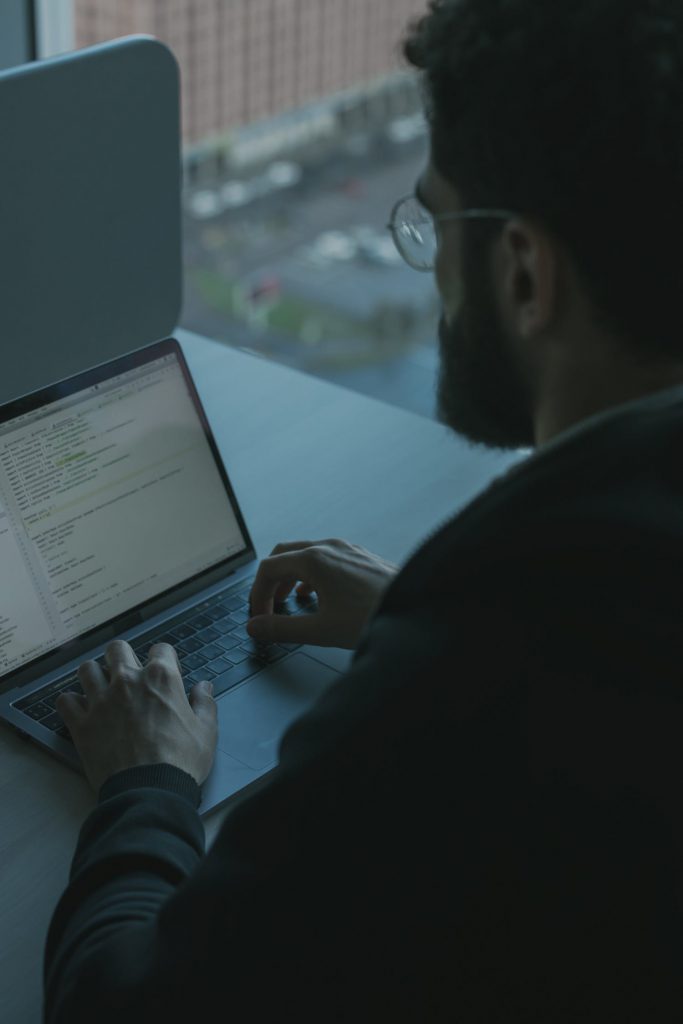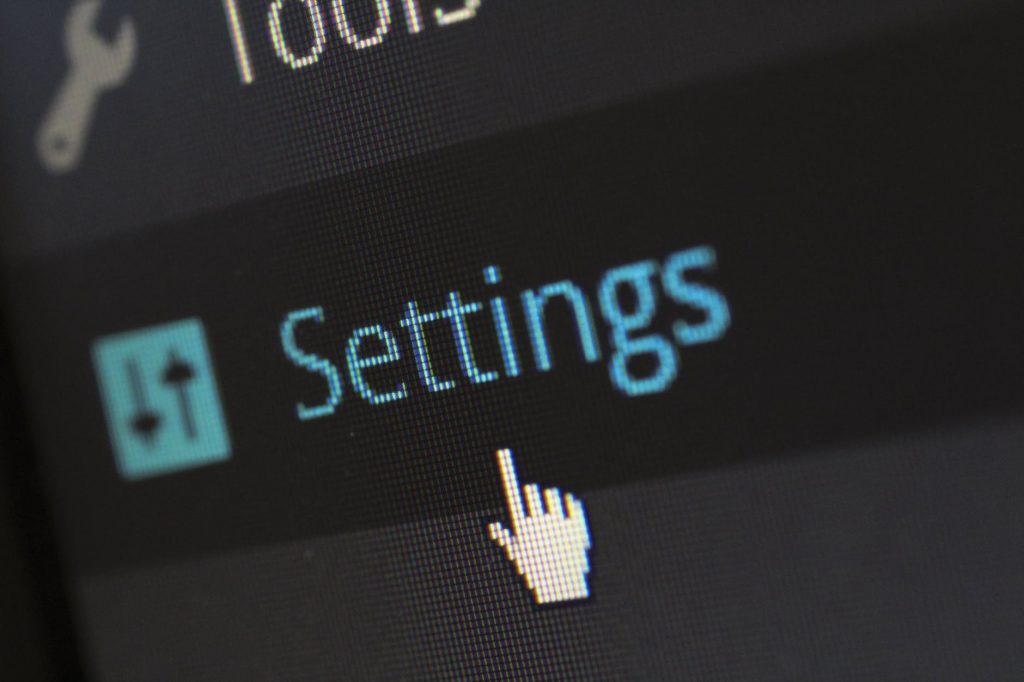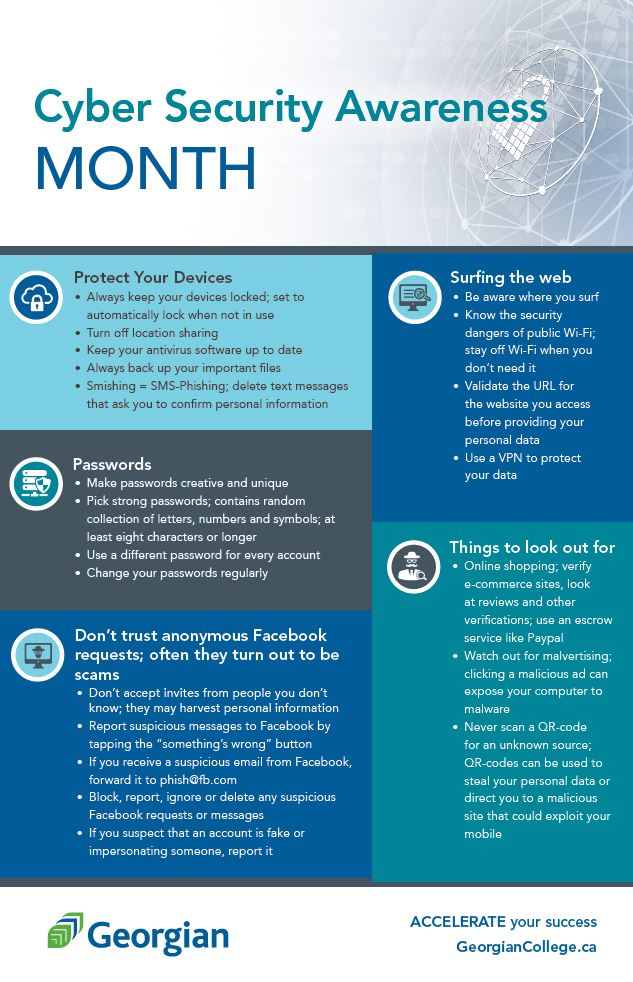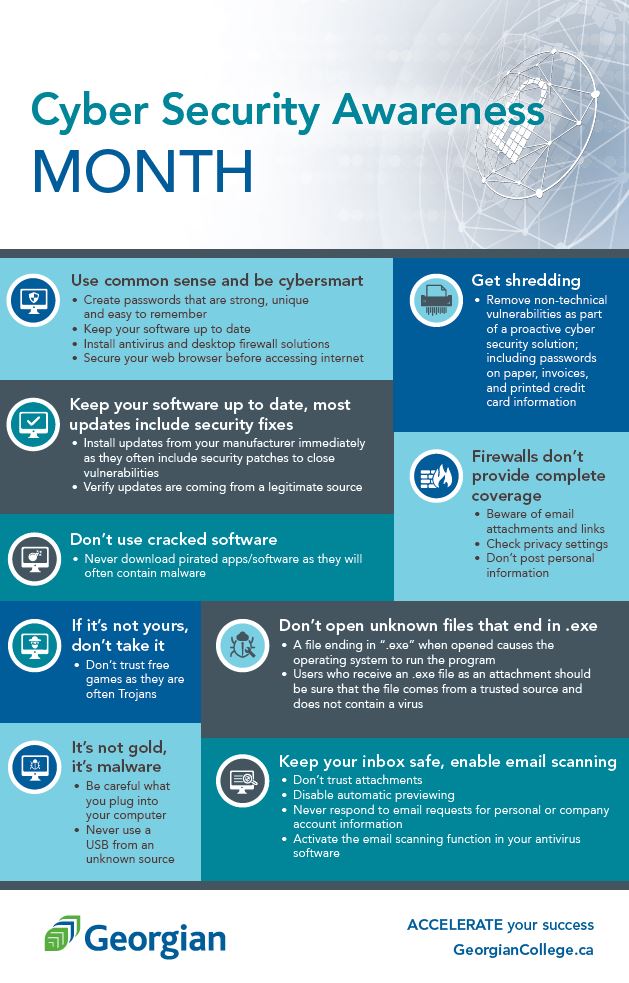Tips for cyber security best practices
Oct. 24, 2023
It’s always important to safeguard your privacy when you’re online, especially now when so many of us are using more virtual tools. There are many cyber threats out there, but by implementing a few simple and important tactics, you can continue to navigate safely.
October is National Cyber Security Awareness Month, so it’s the perfect time to check out these helpful tips.
Beware of unsolicited emails and texts
Cyber attackers try to trick you into clicking on links or attachments so they can infect your device or steal your data:
- Be cautious if the tone of the message is urgent or threatening
- Look for typos as they’re often a sign of a phishing attempt
- Don’t click on links or attachments from senders you don’t know
- Use trusted anti-malware software

Learning and working from home
- Cyber attackers are looking to exploit teleworking connections because so many people are now working outside their organization’s IT security perimeters:
- Secure your home wireless router with strong passphrases. Don’t keep any default password
- Don’t let others use your Georgian account
- Turn off Wi-Fi, Bluetooth and GPS when not in use
- Password protect all home or work-issued computers you use to access your Georgian files, and try not to allow children and other family members to use devices you use for your studies or work. Setting this boundary can help prevent folks from accidentally erasing or modifying information, or accidentally infecting the device with a virus, ransomware or malware
- Don’t copy confidential or private data onto USB drives since they’re easily lost or stolen. If you must do so, ensure your USB drive is encrypted and delete the data after use
- Avoid downloading confidential or private data onto your computer’s hard drive
- Report suspicious activity to your IT security team immediately
Secure your identity, guard your privacy
With more of our lives connected in the virtual realm, your digital identity becomes even more important to protect. As we spend more time on virtual conferences and video calls, it’s important to think about privacy. Consider these questions when trying new services:
- Who can access or join the meeting/call?
- Can it be recorded? If yes, do all participants know?
- Are chats preserved and shared?
- If there’s file sharing, where are those files stored?
One of the more popular features on videoconferencing tools like Skype, Microsoft Teams, etc., is the ability to blur or change your background. This can be an important privacy step you can take to maintain privacy between home and work environments.

Tips for staying safe from social engineering
- Before clicking on a link, hover your mouse over the link to make sure the link is secure and matches the website you’re looking for
- Instead of clicking a link or a button in an email to navigate to a website, navigate directly to the website by entering the URL into your address bar
- Before sharing sensitive information (e.g., birth date or payment information, verify that the source you’re sharing information with is legitimate
- If someone you know messages you to ask about your organization or sends you a link, call or text the person directly to make sure the request is legitimate
General tips
Now is the perfect time to up your overall cyber hygiene game:
- Create passphrases: strings of words are stronger than passwords and easier to remember
- Install software updates right away as they often contain security patches
- Use multi-factor authentication on your devices to unlock it like a PIN and a fingerprint
- Store your data securely: back up your crucial data and know how to retrieve it
- Secure your social media and email accounts: apply all the security and privacy settings
It’s important to protect personal devices with the most up-to-date security.


Interested in a career in cyber security? Check out our Cybersecurity graduate certificate.
This post was originally published in October 2020 and re-shared in October 2023.